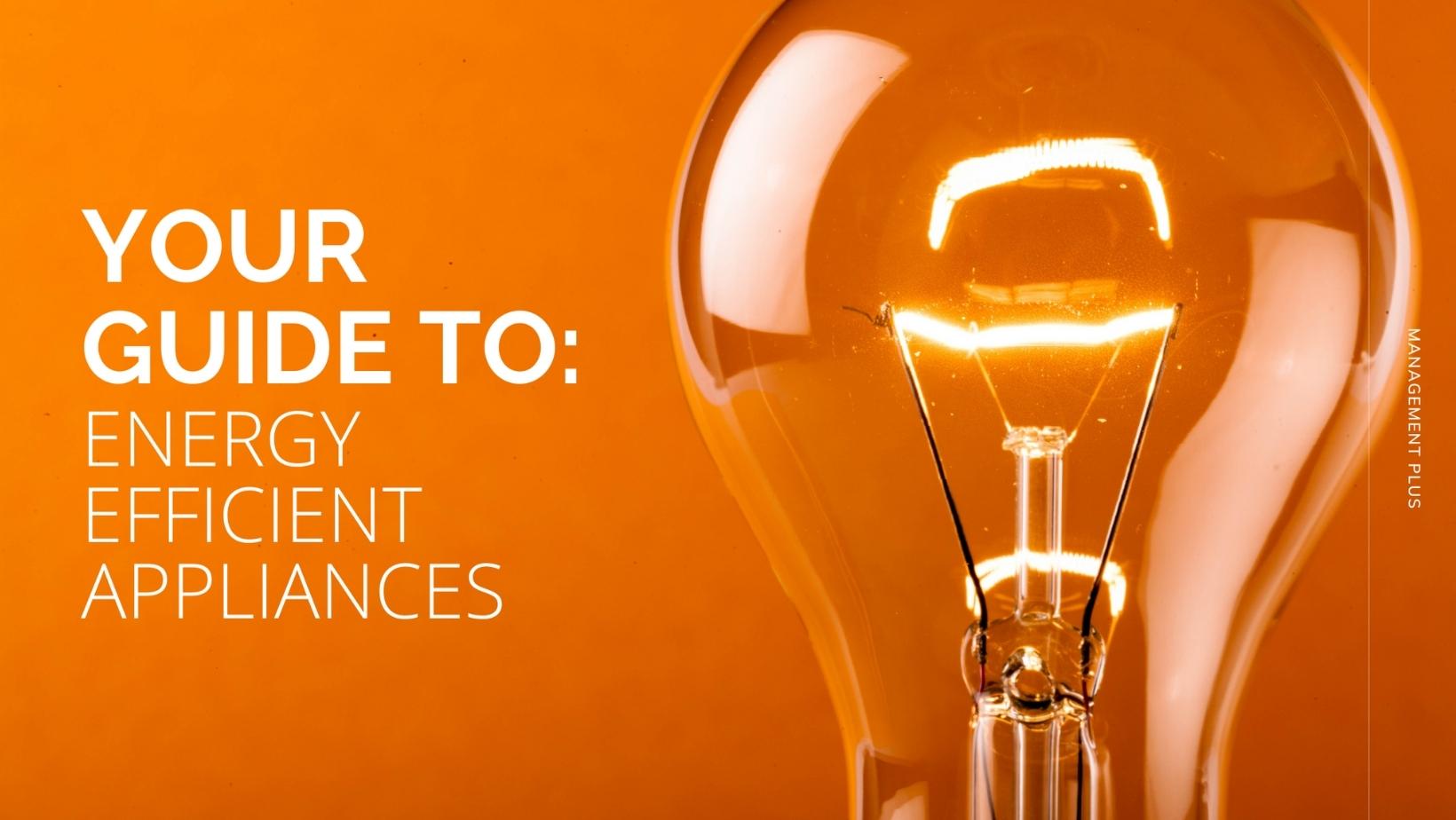Your Guide to Energy Efficient Appliances
Your Guide to Energy Efficient Appliances

Making your House Work for your Wallet
Appliances are one of the first things people notice when they enter your home.
From your stove to your dishwasher, down to your air conditioning, appliances affect your level of comfort and your overall lifestyle. However, they also affect your budget in that the more you use them, the higher your energy bill will rise.
Every homeowner wants to keep the cost of their energy bills down and one of the best ways to do this is by getting energy-efficient appliances. Not only do these modern devices look stylish, but they also function better and are cheaper than more traditional gadgets.
In this post, we will briefly go over how to identify energy-efficient appliances and why a cheaper price tag might end up costing you more eventually.
Dishwasher
Due to modern innovations and advancements in dishwashing technology, dishwashers are much different than they were even a decade ago. Newer options allow dishwashers to reduce water and energy waste while saving you time and money.
Here are some things to look out for when selecting a new dishwasher:
-
See if the dishwasher has sensors to test how dirty dishes are and adjust washing accordingly.
-
Average dishwashers average 10 to 15 gallons of water per load. An average family produces 150 loads per year totaling 1800 gallons of water used just for washing dishes. Dishwashers certified by Energy Star average only 5.5 gallons per load, saving hundreds of gallons of water per year.
-
Choose an appropriately sized dishwasher and load dishes efficiently. If your dishwasher is too small for the number of dishes you use, you will end up having to run the dishwasher often, leading to an increased amount of power consumption. It’s usually better to get a larger dishwasher, so long as it fits in your kitchen.
-
Only run full loads. This will lead you to have to run the dishwasher less often.
Dishwashers made before 1994 average an extra $35 per year in energy expenses. In addition, modern dishwashers don’t require you to pre-rinse dishes and offer the option to air dry.
More modern devices can reduce the amount of energy consumed and save you money in the long run. If you are considering replacing your out-of-date dishwasher, your electric bill will thank you.
Stove and Oven
Ovens and stoves are a daily essential in most households and thus use up a large amount of energy. Using your stove and oven more efficiently can help reduce your electric bill.
Here are some tips to help you find more energy-efficient appliances:
-
Gas ovens tend to be more efficient than electric ovens.
-
Convection ovens also tend to be better as they reuse hot air. On average a convection oven uses about 20% less energy.
-
Likewise, gas stoves are more efficient than electric stoves. Electric stoves tend to take three times more energy to operate than gas stoves.
-
Consider investing in an induction stovetop over a gas or electric. An induction stove heats the pot or pan directly instead of relying on an electric coil or gas-supplied flame.
-
Cook multiple dishes at once to save heat energy.
-
Use ceramic or glass pans as they hold heat better.
-
Keep the oven closed when cooking to prevent heat from escaping.
-
Use the self-cleaning feature after cooking to reuse heat energy.
Reducing the amount of energy your stove and oven use is one of the best ways to reduce the amount you are paying on your gas or electric bill. Not only that, but the more energy-efficient an appliance, the better it is for the environment.
Refrigerator
The refrigerator is one of the only appliances in the home that is in constant use. Because of this, it takes up over 13.7% of a home’s energy usage, according to the department of energy.
Here are some tips to identify energy efficiency in new refrigerators and improve the efficiency of existing units:
-
Leave 1 inch of space around the refrigerator to allow for proper airflow.
-
Most energy-efficient refrigerators are between 16 and 20 cubic feet.
-
Consider getting a refrigerator without an ice maker and dispenser. An icemaker increases the refrigerator’s energy usage by 14-20%
-
Look for appliances with an energy-saving switch. This allows you to control anti-sweat heaters and the heat coils to limit energy use.
Reducing the amount of energy a refrigerator uses is one of the most effective ways to reduce your energy bill. In addition, more efficient refrigerators reduce the number of halocarbons put out by a refrigerator, ebbing the amount of one of the main culprits of the greenhouse effect.
Air Conditioning
Air conditioning is another appliance that is nearly constantly on. The AC is a major source of comfort in our lifestyles and arguably one of the most necessary appliances, especially if you live in a climate that is very hot in the summer.
Here are some tips for finding the most efficient AC for your home:
-
Choose the correct size. An AC that is too large will make the room damp and too small of a unit will have to work too hard and thus will drive up your energy bill.
-
Turn off your AC when you are not home. This is especially true if you are gone for an extended period. There is no sense in cooling an empty house, and your electric bill will suffer the consequences.
-
Look for an energy-saving setting on newer units. This feature will automatically turn off the compressor and fan when the room reaches the desired temperature.
-
Check your unit’s Energy Star Rating, Energy Efficiency Rating, and Seasonal Energy Efficiency Rating.
-
Consider investing in a Wi-Fi-enabled AC which allows you to fine tune your usage.
Like the refrigerator, any reductions you can make on your AC will be significant in reducing your energy bill.
A Smarter Home for a Smarter Homeowner
Most people tend to shop for appliances in May and September as that is typically when companies release their latest models. However, you can shop for appliances at any time. Remember: the cheapest and newest option is not always the best. Instead, opt for the highest-rated and most energy-efficient appliance to save you money overall.
Appliances are one of the most significant determinants of your lifestyle. If you are looking for an overall upgrade in your lifestyle, consider reaching out to Management Plus to see what type of appliances are right for your home as well as those that fit your Homeowners Association’s standards.
